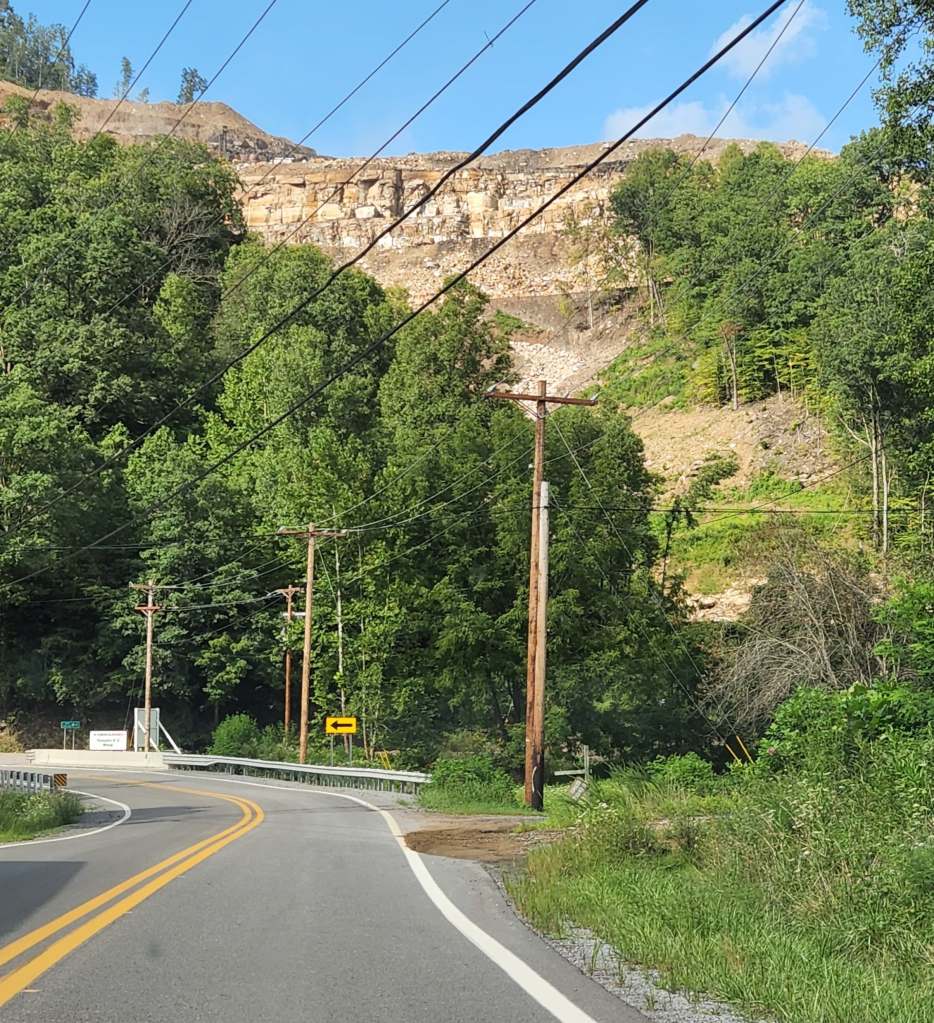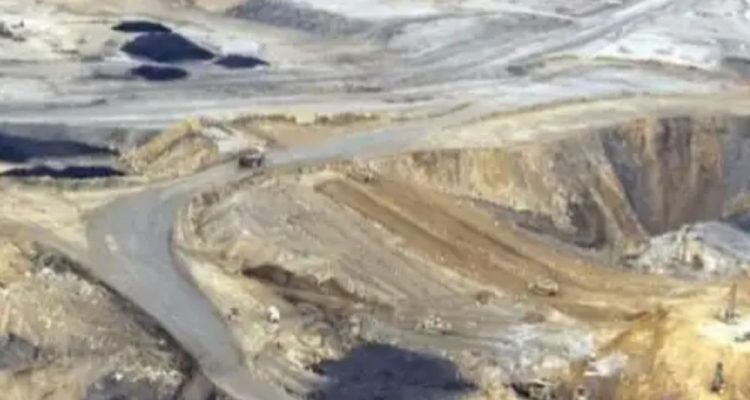This article was originally published by Accidental Tomatoes
I was five years old the first time I heard the term strip mining. I was with my mom and a friend of hers at the local high school as they applied for federal assistance in the aftermath of what we in the Tug River Valley of Southern West Virginia refer to as The Great Flood of 1977.
While they waited in line, a petition to end the practice of strip mining was circulated. I recall how strange a term it was, even though at that young age I really had no way of grasping exactly what it meant.
Forty-Five years later, I’m just coming to terms with the meaning, and more importantly what it means for our people. Forty-five years later, it’s time for us all to come to terms with what it’s done and continues to do to the place we call home.
The day of reckoning has arrived.
No Room at the Inn
When I first learned what happened to Appalshop[1] during July’s catastrophic flooding of Eastern Kentucky, I figuratively was gutted in much the same way our ancient hills literally have been gutted and hollowed out by an avarice-induced capitalist feeding frenzy. Not only was the organization’s building flooded, but so were its archives, which contain priceless, one-of-a-kind documentation of Central Appalachian history and culture through film, oral histories, art, music, and more.
As the archival recovery began, a recording of Jim Webb was found talking about how that 1977 flood led to community organizing around environmental issues. In fact, it was Webb and his friends who started the above-referenced anti-strip mining petition in the hometown we shared. They managed to acquire some seven thousand signatures from local folks…and did so while sheltering at a local church housing flood-made refugees.
Until the church asked them to leave because of it.
In the house of the Creator, there was no room for creation.
Pulling back the veil
There’s a common misconception of the meaning for the term apocalypse. In faith circles it’s generally used to denote anything pertaining to the “end times,” or the destruction of the world as we know it.
However, the literal meaning is an unveiling. In other words, the authors of what we know as biblical apocalyptic literature, such as the prophetic writings of the Hebrew Bible or the New Testament’s Book of Revelation, are pulling back the veil on reality.
With that framing, the persistent, intense flooding we have seen over the last month in Southern West Virginia, Southwestern Virginia, and Eastern Kentucky is apocalyptic in every sense of the word. It most certainly has brought about the end of the world as many know it. The victims will never return to any pre-flood normalcy.
And most assuredly these tragic events have pulled back the veil which has blinded so many to the reality of climate change, and particularly—in this area—how strip mining (or mountaintop removal as its also known) has fueled the massive, unprecedented destruction we’ve witnessed and continue to live through.
It must awaken the church from its slumber. For the people of God that call these hills and hollers home, silence on the issue not only is no longer acceptable, but heresy. It is blasphemous.
No longer do we have an excuse.
The apocalypse is now.
The Forces of Death
(Photo: Strip operation at Irman, Wyoming County, West Virginia. Photo by Brad Davis)

Mountaintop removal is nothing new. It’s been a common practice in Coal Country for decades, going back to the 1950s when it became more cost efficient for companies to lop off the top of a hill to get to the coal seam below than to send human capital under the mountain to retrieve it.
But as is most often the case, what’s most cost efficient for the company costs the people everything. We end up paying the price…in blood.
It’s more murder than methodology. More disfigurement and disembowelment than simply displacement. The trees and all other foliage is the first to go. Then the soil. Then tons of rock. All dumped in the valleys below, burying streams along with our future.
What’s left is a flattened moonscape incapable of retaining water. There is no vegetation to slow down or hold at bay the runoff sweeping down the hillsides, and nowhere for it to go once it reaches the valley floor.
And when you have excessive amounts of climate change-induced rainfall, what you end up with is a cauldron of devastation bringing destruction from above on all that is below.
Hydrologists have concluded that runoff from strip-mined hills can be up to one thousand times greater than that coming off hills that have gone untouched by King Coal’s icy clutch.[2] Couple that with studies that rainfall will only intensify in the coming years due to the continuing effects of climate change, and what we are faced with is nothing short of an existential crisis.
What we as God’s people are faced with is a choice to side with either the God of life or the forces of death.
Apocalypse as Resistance
I’m not Roman Catholic, but I’m a huge fan of Fr. Richard Rohr, the Franciscan founder of the Center for Action and Contemplation. His words are pertinent:
Christianity is a lifestyle – a way of being in the world that is simple, non-violent, shared, and loving. However, we made it into an established religion and avoided the lifestyle change itself. One could be warlike, greedy, racist, selfish, and vain in most of Christian history, and still believe that Jesus is one’s personal Lord and Savior.
The world has not time for such silliness anymore. The suffering on earth is too great
—Richard Rohr, OFM
I can’t help but think of Jim Webb and what happened to him and his group at that church house whenever I hear or read that quote now. Coal Country has no time for such silliness anymore. No time for continued silence. No time for continued inaction.
The suffering and the impending consequences are far too great.
No place exists any longer for sweeping the subject under the rug and kicking prophetic voices out of the building.
We don’t have that luxury. Indeed, we never did.
It’s time to stop burying our heads in flood mud pretending like we haven’t a moral imperative to act, believing that the church should only be concerned with spiritual matters.
Newsflash: this is a spiritual matter. And we’ve no time to waste.
When God’s people are at our best, we focus on life in the present, giving hope to hold on in a difficult reality because a better future is coming. Hope that we will survive the hardship of whatever powers or principalities we face because God is with us and lifts up those who have been laid low.
In this respect the act of apocalyptic unmasking is one of resistance. In the midst of all this chaos and death, God still is in control. The same God who gives us the gift of creation as a trust. The same God who places upon us a sacred calling to care for what God has brought into existence.
Any action that places God’s creation in peril is sinful. Any action or inaction by God’s people that aids and abets such peril is equally sinful.
But hear the good news: There’s still time to reverse the two-headed monster of climate change and strip mining that threatens to render our homelands uninhabitable. And there’s still time to reverse the devastating effects of our failure as a church to address them by fiercely, urgently, and prophetically advocating for the cessation of harmful environmental practices.
But time is running out. Is there now room for God’s creation in God’s house?
[1] Appalshop is a media, arts, and education center located in Whitesburg, Ky, the heart of Central Appalachian Coal Country and the heart of devastating flooding in that region which killed nearly forty people in mid July. In many respects it can be viewed as the region’s Smithsonian Institution.
[2] Strip mining contributed to deadly Kentucky flooding, ex-regulators say (courier-journal.com)

